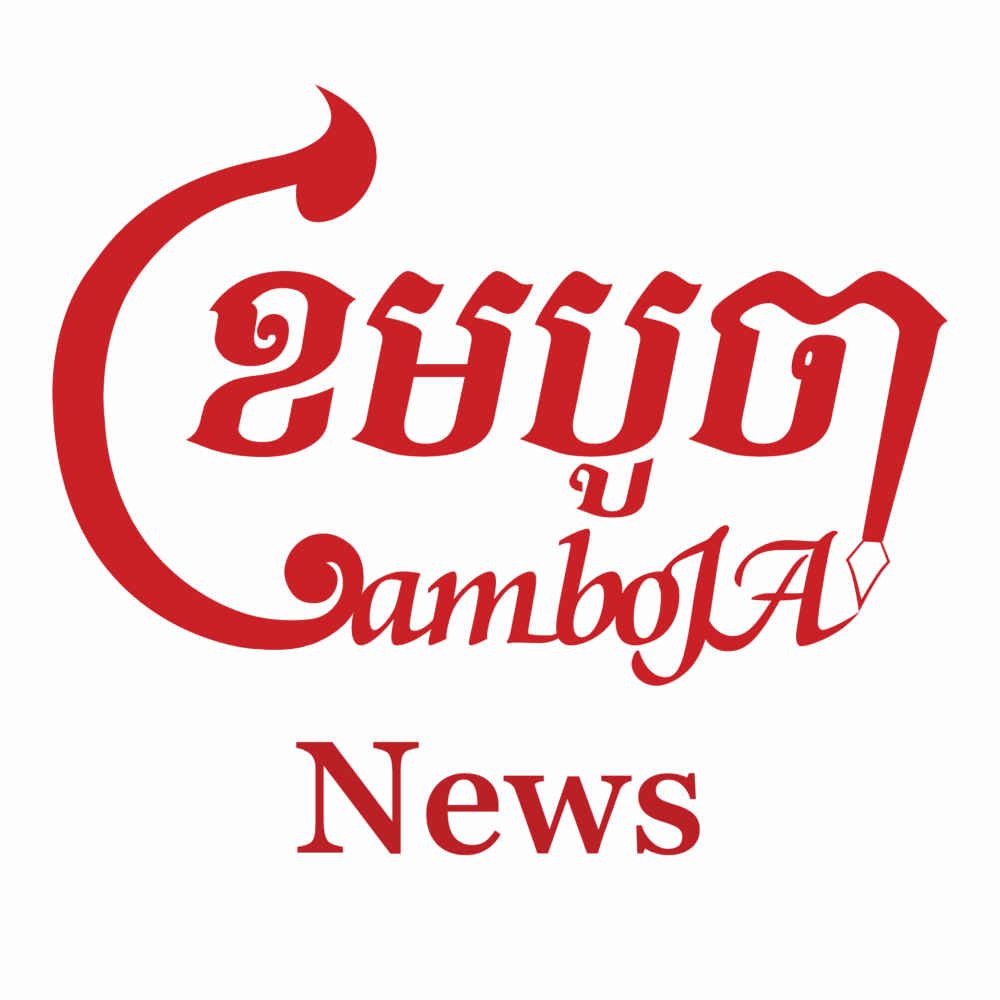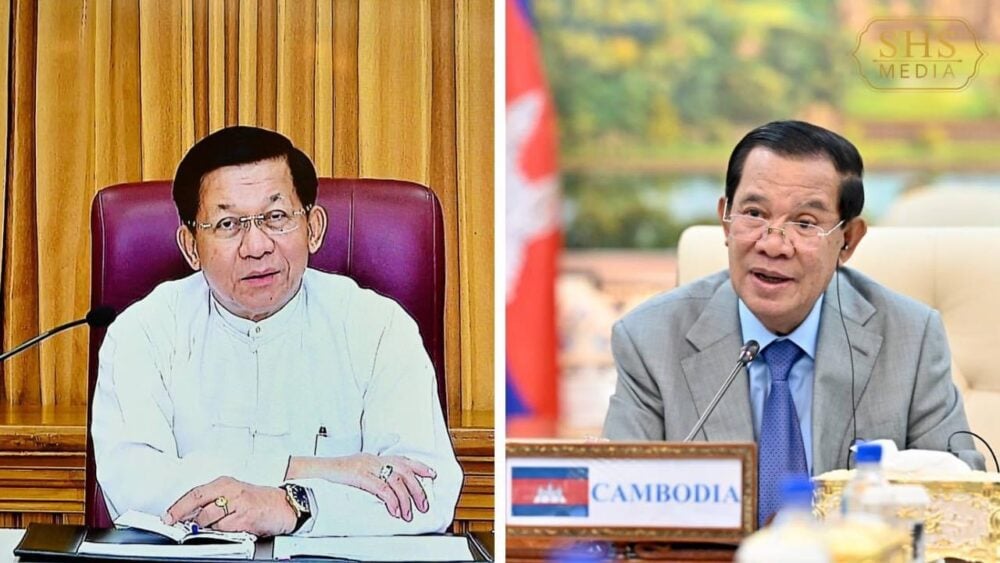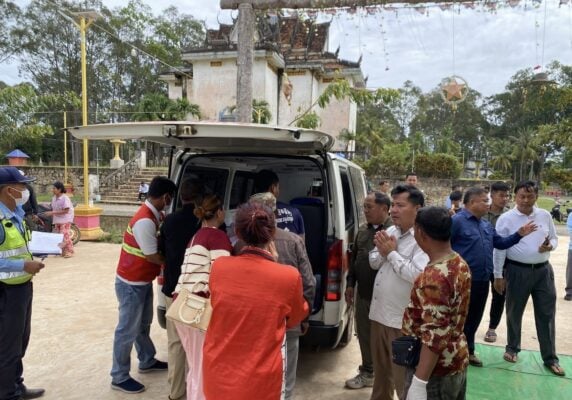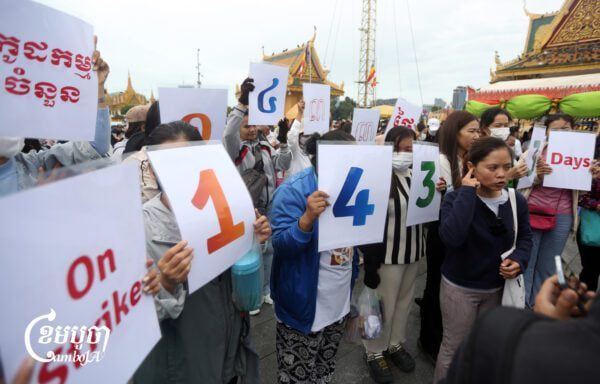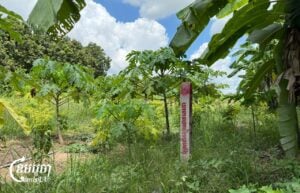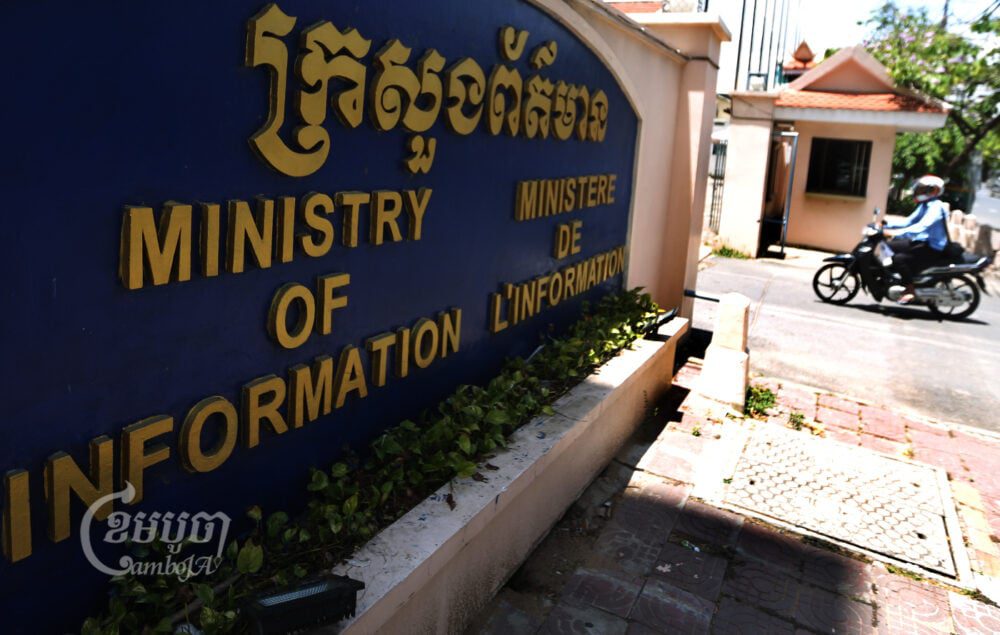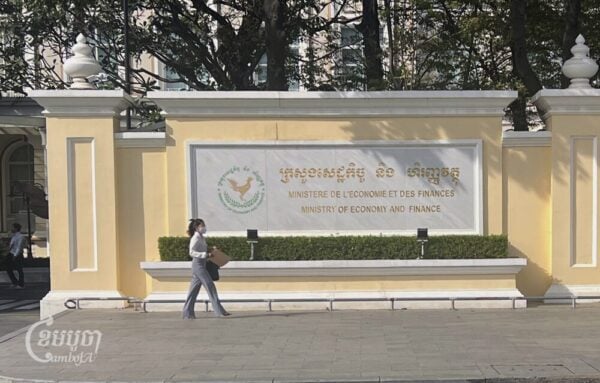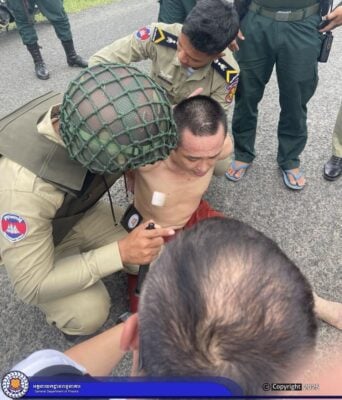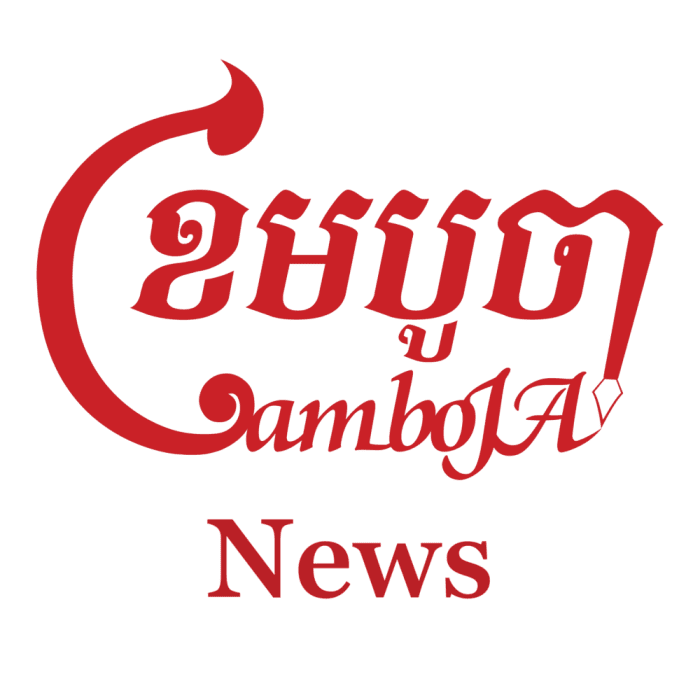Following an amendment to its political parties laws, similar to Cambodia, Myanmar plans to send special envoys to Cambodia to learn more and gain experience from the National Election Committee (NEC) on conducting elections.
However, a political analyst opines that if Myanmar decides to hold an election by following Cambodia’s election process, it would “not be able to offer full democracy to their people as its election was neither free nor fair”.
The NEC said it is ready to impart knowledge to Myanmar, share “four points” to make the election successful and ensure that the results are acceptable by relevant parties.
On May 7, Cambodian Senate president Hun Sen wrote on his Facebook that he spoke to Myanmar’s military leader Min Aung Hlaing via video call to obtain information on the current situation in Myanmar.
During the discussion, Min Aung Hlaing said he would send special envoys to Cambodia to gain insights from the NEC into organizing a free, fair and transparent election. The Myanmar leader also agreed to send their non-political representatives to ASEAN foreign ministers’ meetings in January and key ASEAN meetings in future.
In addition, Hun Sen requested Min Aung Hlaing to consider organizing a video discussion between him and Aung San Suu Kyi, which the military leader promised to look at.
NEC spokesperson Hang Puthea said the committee is ready to share its experience with the Myanmar delegation, and other issues involving election preparation. These include voter list updates, party registration and nomination of candidates, election campaign, ballot counting, calculation of seats, ballot storage, determining valid and invalid ballots and the announcement of election results.
He said election officials must not lose sight of the four points, adding that they are “special”. “They are the factors that ensure that elections are organized successfully and the results of the election are accepted by relevant parties.”
If the envoys from Myanmar come to Cambodia before the May 26 council election where Cambodians will vote for capital, provincial, municipal and district candidates, Puthea said he will be able to show them the election process at the polling stations.
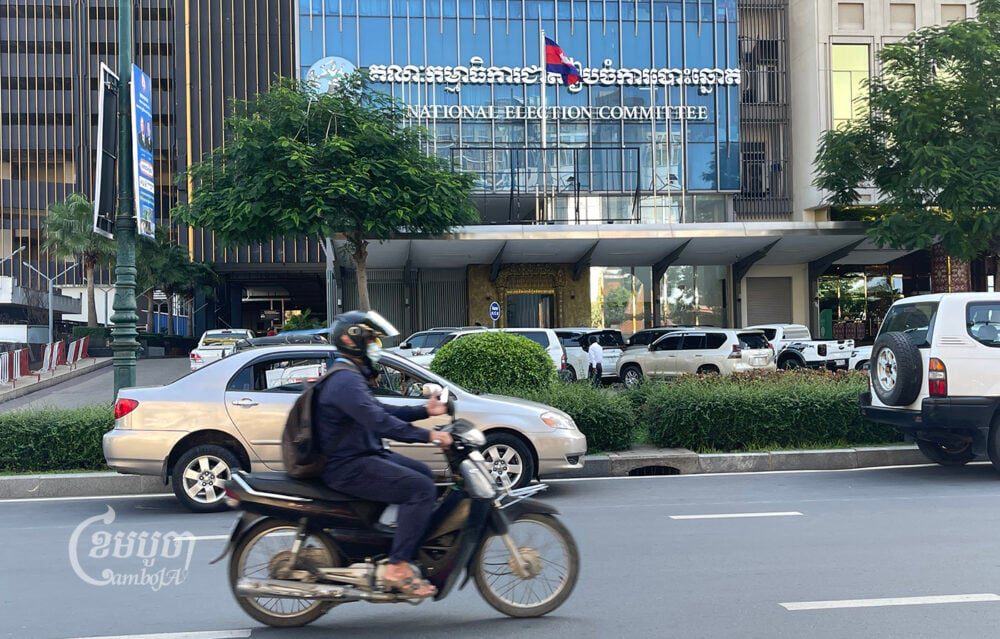
However, at the time of writing, the spokesperson said the NEC has yet to receive any information on the envoys’ trip. In the past, Nepal has sent their envoys to learn about the election process in Cambodia, Puthea added.
Government spokesperson Pen Bona referred questions relating to Hun Sen’s dialogue with Myanmar to the Senate spokesperson. But, the position has not been filled since Mam Bun Neang left.
Separately, Foreign Affairs Ministry spokesperson Chum Sounry said he has no information on Hun Sen’s discussion.
The Myanmar Embassy in Phnom Penh did not reply to CamboJA News via email at the time of publication.
Military plans to prepare for election
Following his meeting with Hun Sen, Cambodia’s former premier, the Myanmar junta affirmed their election intention, according to a report by Reuters on May 9.
Junta spokesperson Zaw Min Tun reiterated Myanmar’s military chief plans to conduct an election, noting the latter’s promises in the past to restore democracy in Myanmar, though no timeframe has been offered for the election.
“We have promised to hold a multi-party democratic election. We are currently preparing and implementing the necessary measures for that,” Zaw Min Tun said last week, Myanmar state media said, quoted by Reuters. The spokesperson also said Hun Sen was an experienced leader who had an interest in Myanmar.
After delaying the election, the Myanmar junta said it would hold it in August 2023, but that too was postponed due to ongoing violence. Plans to hold an election remain as long as there is “peace and stability”, although it may not be held nationwide, Min Aung Hlaing was quoted as saying by Reuters in March, insisting the military was “holding power only temporarily”.
Meanwhile, Cambodian political analyst Em Sovannara believes that Myanmar may not hold the election if the military thought that they would not win. They are seeking negotiations with relevant parties because “many of their citizens have returned to support the resistance movement”.
He also felt that Myanmar’s experience-building exercise on the election with Cambodia might not yield a good result for Myanmar citizens who are fighting to have a real democracy.
He claimed that the election process in Cambodia is “not fully transparent, free and fair” and was not “as good as the Western countries’ election”.
“The Cambodian election is not a positive [example] for democracy because the election system is limited. It does not have a good democratic system like the US or another developed country,” Sovannara said.
Both countries amended political parties law
In early 2017, the Cambodian government amended the Law on Political Parties, paving the way for the Ministry of Interior to file a complaint with the Supreme Court to dissolve any political party that violates the constitution or any other national laws.
The amendment also allowed the NEC to allocate seats of political parties in the National Assembly and commune to other parties that participated in the election after dissolution.
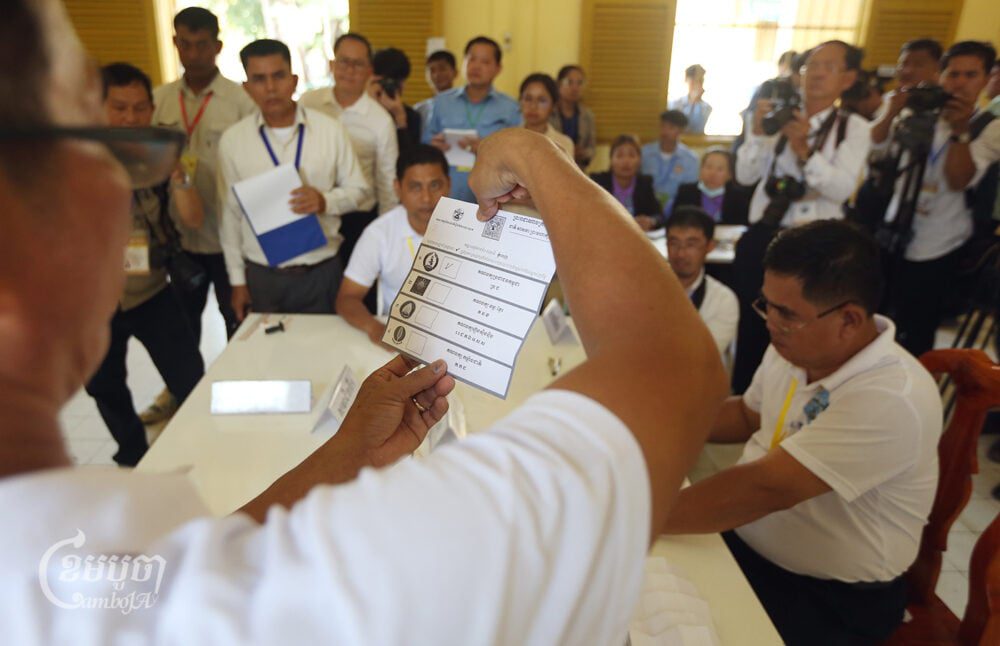
As a result of the amendment, the Supreme Court dissolved the Cambodia National Rescue Party (CNRP) and banned 118 of its senior officials from engaging in politics for five years although they are allowed to request rehabilitation.
The NEC allocated CNRP seats in the National Assembly and commune seats to other parties that participated in the election.
In Myanmar, the military regime, which seized power in a coup in 2021, introduced a law on political parties in early 2023, according to Al Jazeera in January last year.
The law, which replaces a legislation from 2010, disallows “parties and candidates deemed to have links to individuals or organizations designated as committing terror acts or seen as unlawful”.
The Qatari news outlet wrote that parties which were keen on contesting in the national election would need “secure at least 100,000 members within three months of registration and have funds of 100 million Myanmar kyat”. The sum, which was “100 times” more than previously, would have to be deposited with the state-owned Myanma Economic Bank, it reported.
Al Jazeera said parties can be suspended for three years, and dissolved, for failing to comply with the provisions of the new law, also stating that “parties are not allowed to lodge an appeal against the election commission’s decisions on registration”.
Must have voted in the last election
In June 2023, Cambodia amended four election laws just before the parliamentary elections, aimed at stopping people from standing for election if they had not voted in previous elections. It also allowed the NEC to set exceptions for non-voting citizens who can still run as candidates.
During the UN Human Rights Council’s 46th Universal Periodic Review of Cambodia last week, the US raised the issue of the election law amendments, advising Cambodia to repeal them. The US delegate Kaitlin Sandin alleged that the amendments restricted political participation, and freedom of expression, peaceful assembly and association.
Cambodia should also ensure pending draft laws are revised to comply with its international human rights obligations before they are passed. These include the laws on cybercrime, cybersecurity, and access to information, Sandin said.
The European Union also shared concerns about the restrictions to freedom of speech and the right of all citizens to stand for election.
The amendment to the Law on the Election of Commune Council requires candidates who want to stand for election to have voted in the last general election. Similarly, the amendment to Law on the Election of Members of the National Assembly stipulates that candidates must have voted twice in a row before they can contest.
It also states that any person or political party, who are involved in illegal activities will have their name removed from the voter’s list, their candidacy deleted or their party and themselves disqualified for five years. These offenses include obstructing people or incitement and destroying or damaging ballot papers.
The amendment to the senate election law states a similar requirement for candidates as the commune council election. The Law on the election of the Capital/Provincial, Municipal/District and Khan Council requires the people to have the last general election voted if they want to stand for election.
Won all seats, process criticized
After the amendment of the law in 2017, the ruling party won all 125 seats in the National Assembly in the 2018 national election, promptly condemned as “not free and fair” by rights groups, particularly with the dissolution of the main opposition party and a crackdown on the press.
The 2023 general election was also marked by attacks against government critics and independent media, the 2024 Global Human Rights Watch said, with observers noting that arrests and detention of political activists and unionists often preceded elections. Last year, ruling party CPP won 120 out of 125 seats in the National Assembly.
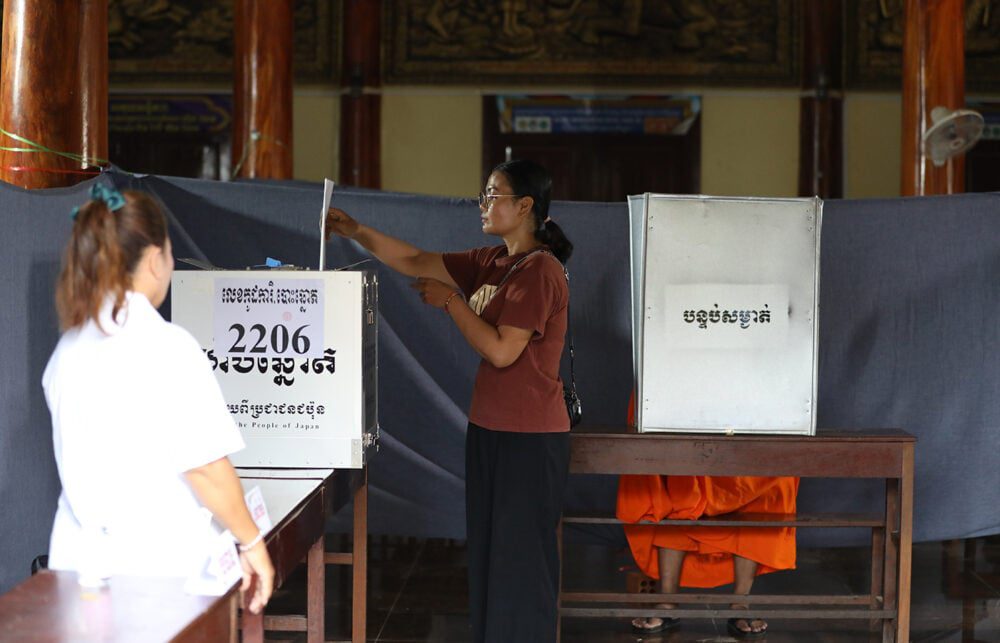
Following the election, the United Nations highlighted how restrictive laws and policies hampered the registration and participation of opposition political parties and candidates. They expressed regret that the Cambodian general election was conducted in a “severely restricted space” that negatively impacted the rights of Cambodians to participate fully and equally in all aspects of the electoral process.
The UN said Cambodia has seriously violated human rights, restricted political space and citizens, and shut down independent media. It also prevented the opposition party from contesting in the election for the seventh legislature which resulted in a loss of confidence in the election process.
Major democracies such as Australia, the US, France, Germany, the United Kingdom and the EU issued statements expressing similar concerns about the process of voting in Cambodia, which has created an unfavorable political environment.
